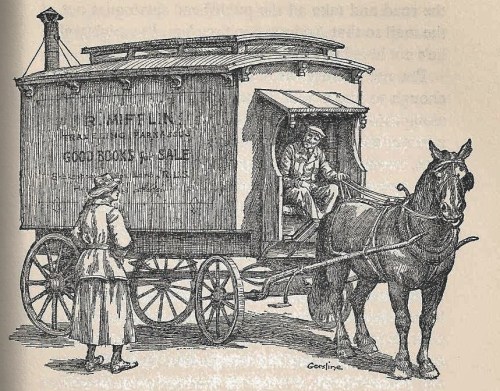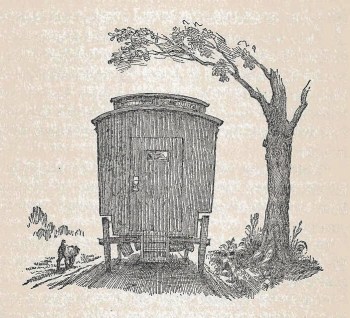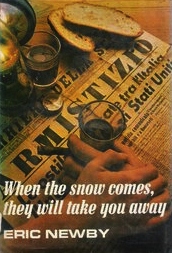Oh yeah, that, and the very graphic descriptions of sex, and human dissections. But once I was fully engaged, and became comfortable with the “voice” of the narrator, it also worked.
I came to this book expecting to dislike it, if not downright hate it. After all, my personal standard for ancient Greece era historical fiction is measured by the excellence of Mary Renault‘s works. It is my current opinion that Annabel Lyon, with this book, proves worthy of standing in the same room as Renault. And in her (Lyon’s) acknowledgments she mentions Renault’s stellar Fire From Heaven, so that was another point in favour.
Lyons is no Renault, which isn’t a condemnation. She is a writer of another time altogether, speaking to the readers of her time as Renault spoke to the readers of hers. Whether Annabel Lyon’s work will have the staying power of Renault’s historical fiction classics, time will tell. I suspect perhaps not, but we shall see. I suspect that Lyons will be a writer to watch out for in the years to come, though her blazingly sudden fame (notoriety?) may be something of a detriment to considered reflection of the merit of her subsequent work.
I’m finishing up this review away from home, without the book in front of me. It is, sadly, in the side pocket of my laptop case, which is sitting on the floor next to the kitchen door some 200 kilometers away. I walked out of the house with that naggy “I’m forgetting something” feeling, and was too far to swing back when the penny dropped. Luckily, courtesy of public library internet terminals, I can get onto my WordPress account, and with an hour of time to fill, I’m going to try to get this review off the “waiting” sidebar.
Browsing other readers’ comments in the hopes of freeing up my stuck thought processes, I came upon the review I wish I’d written, by Patricia Robertson on the Canadian Notes and Queries website. Nothing I can come up with this evening can match the scope of this review, so I’m completely cheating and pasting most of it (and it’s long) into this post. Good stuff. I bow in humble admiration. Here’s where the link to the full March, 2010 review: Aristotle Among the Barbarians
And here is a lengthy excerpt. It’s detailed, so I probably should give a possible spoilers warning.
As the book opens, Aristotle is travelling to his homeland of Macedonia after a twenty-five-year absence. “The rain falls in black cords, lashing my animals, my men, and my wife, Pythias, who last night lay with her legs spread while I took notes on the mouth of her sex, who weeps silent tears of exhaustion now, on this tenth day of our journey.” This sentence, the first, functions as a microcosm of the entire novel. The “black cords” that “lash” the little entourage (and Aristotle himself) foreshadow the dark choice he must soon make. When his boyhood friend, King Philip of Macedon, asks him to stay on to tutor his young son Alexander, Aristotle is horrified. He has loftier ambitions: to return to Athens, to the Academy where he was once Plato’s student and which he hopes one day to lead. Compared to the Athenians, the Macedonians are barbarians. Yet how can he refuse Philip?
The same image prefigures Aristotle’s depressive episodes – “his old usual,” he calls it, describing it as “sucking colour from the sky and warmth from the world.” Whether the actual Aristotle suffered from clinical depression, history doesn’t tell us, but Lyon’s intuitive attribution of this disorder to her highly gifted protagonist feels right. As for her wonderful phrase about Aristotle’s notetaking, it can be interpreted two ways: metaphorically – Aristotle the rationalist, making mental notes in the midst of fucking – and literally – Aristotle the empiricist, writing detailed descriptions of the world around him. Already he is a modern, grounding his rationalism in that most modern of enterprises, the scientific method. Poor Pythias, whom he will often treat in the same clinical way, and who (in the same sentence but twenty-four hours later) “weeps silent tears of exhaustion”!
The brilliantly evoked relationship at the heart of the novel is a long way from the Hollywood paradigm – the charismatic and indefatigable instructor who succeeds in catalyzing his pupils against overwhelming odds. Alexander is, sometimes, deeply engaged by Aristotle’s demonstrations of science, drawn in almost against his will by his teacher’s Socratic method. But he’s also of royal birth, destined to rule a kingdom; though he admires Aristotle, he doesn’t (perhaps cannot) flatter him through imitation. To Lyon’s credit she doesn’t pander to contemporary taste by hinting at homosexual attraction, though she makes it clear that homosexual relationships are an accepted norm. (Alexander’s relationship with his lifelong companion Hephaestion is one such.)
The Golden Mean, in fact, shows us just how narrow our dramatic expectations have become. Though sex and intrigue and violence are present, the focus is on two men who exemplify two great life choices: contemplation versus action. Aristotle comes down squarely on the side of apollonian reason against unreason, thinking against unthinking instinct. Early in the book his nephew and apprentice, Callisthenes, recounts an incident from a night out when he’s witnessed the killing of one man by another over a drink. “What kind of a people is that?” he asks his uncle, who says, “You tell me.” “Animals,” Callisthenes answers. “And what separates man from the animals?” asks Aristotle, ever the teacher. “Reason,” Callisthenes dutifully replies. “Work. The life of the mind.” To which Aristotle’s ironic answer – “Out again tonight?” – underlines Callisthenes’ lack of real commitment, in Aristotle’s terms, to being human.
Moments like this – moments that demand full reader engagement to comprehend – occur throughout the novel. We’re forced to pause, to re-read, to think more deeply. Lean, taut, stripped down, The Golden Mean is dense with meaning while also managing to be crisp, direct, and contemporary. Lyon has a poet’s eye without allowing her prose to become poetically languorous. She’s especially good at verbs: “The Athenians sharked up and down the coast,” for example. But she also understands that metaphors in abundance do not make a novel literary – that instead they’re best used sparingly, like salt (a lesson apparently lost on a number of highly acclaimed Canadian writers).
She also rips up the conventions of the historical novel. Instead of the pseudo-realistic “at your service, my liege” school of dialogue, the voices here roar along like a freight train. These are men who use words like “fuck” and “balls” and “bitch,” whose language has the crude vitality it must have had then. Lyon succeeds in making ideas and argument exhilarating, sexy even. She also risks deliberate anachronisms, although occasionally she pushes too hard. “It’s not that he has no boundaries,” Aristotle tells Pythias at one point, speaking of Alexander – using an analyst’s terminology some twenty-odd centuries before Freud! Late in the novel, when Alexander suggests assassinating the new director of the Academy (chosen over Aristotle), Philip’s regent in his absence, a general named Antipater, tells him no. “You are not going alone to Athens to snuff some hundred-year-old egghead with a protractor for a dick. You’re a prince of Macedon. That particular freak show is not for you.” All of this worked for me, except for “freak show.” A matter of individual reader taste, perhaps, but after “snuff” and “egghead” and “dick,” it seemed forced and over the top.
Lyon uses flashback rarely, but late in the book we meet Aristotle as a young man of eighteen when he first entered the Academy. We’re aware of the parallelism here between Aristotle and Alexander, the poignancy of this glimpse of Plato’s potential (but forever thwarted) heir. He’s also a typical adolescent, avid for sexual experience; the chapter ends with “The girl had licked and bitten, licked and bitten, until I didn’t know myself.” It’s a vigour echoed throughout the book, both in Aristotle’s relationship with Pythias, given to him as a gift when she was fifteen – “gods forgive me but I went at her like a stag in rut” – and in his later attraction to Herpyllis, Pythias’s maidservant, whom he marries after his wife’s death.
Lyon’s wonderfully complex Aristotle spends little time simply writing or thinking, apart from those long bouts of depression. He is in the world, even if not always fully of it, as shown by the emotional detachment, almost cruelty, that accompanies his elevation of reason as a virtue above all others. When Pythias is dying, she tells her husband of recurring dreams, sent by the gods, that foreshadow her death. Aristotle, who has never had such dreams – “My mind is too busy in waking,” he tells us, arrogantly, “to suck for fuel during sleep” – treats this as yet another teaching opportunity. He uses scientific explanations rather than affection to comfort her – explanations that, amusingly to us now, are not “scientific” at all. “The body’s sense-organ, the heart, needs natural intermissions, called sleep;… the goal is to give rest to the senses,” he tells her. Pythias, calmed, repeats an earlier lesson about the heavens and “all the spheres, and the outermost sphere that was black but all full of pin-holes, so that the great fire behind shone through as stars.” How foolish, we think condescendingly. And then, as I’m sure Lyon intends, we catch ourselves. What misguided beliefs do we hold today that, centuries hence, will be scoffed at by a more “enlightened” world?
Alexander, too, is a vivid portrait: an impetuous, sulky adolescent, used to getting his own way, yet with a quick and resourceful mind. Along with ethics and rhetoric, astronomy and botany, he studies zoology with Aristotle, who dissects a chameleon for Alexander’s benefit, cutting it open with his surgeon father’s knives. “I detach the bloody nut of the lizard’s heart and hold it out to him. He takes it slowly, looks at me, and puts it in his mouth. ‘I’m sorry I’m late,’ he says. ‘I was with my mother.’ ”
Once again Lyon demonstrates the depth of her characterization and her seamless fusing of image, gesture, and dialogue. How apt that Alexander, in a display of bravado, eats that symbol of courage! And does so while staring defiantly at his teacher, thus undermining his apology. How disturbing, too, that this gesture is linked with his mother, giving his relationship with her an erotic edge. In fact his parents are estranged and he’s been forbidden to see her, so he’s defied his father, too. The same oedipal relationship is played out between Aristotle and Alexander throughout the novel – Alexander wants Aristotle’s approval, yet is ultimately contemptuous of a life of inaction. “You must look for the mean between extremes, the point of balance,” Aristotle tells his student – the golden mean that gives the book its title. But Alexander doesn’t. He chooses an extreme – chooses, in fact, to become his father, as perhaps he must. “I want to fight,” he tells Aristotle, dismissing diplomacy as useless. “War is the greatest means to the greatest end, the glory of Macedon.”
Still, he learns those early lessons all too well. In a searing episode, when Aristotle (for scientific purposes) dissects an enemy corpse after a battlefield victory, Alexander arrives, clearly traumatized by the fighting, and uses those same skills to skin the man’s face. A horrified Philip says to Aristotle, “You teach him this shit. What kind of animal are you, anyway? Who does this to a body?” Another irony, since Philip himself is arguably an animal, a soldier operating not from reason but instinct. And what about Aristotle? Is he self-deluding, just an animal after all? Worst of all, is that what he’s really taught Alexander? It’s clear that the boy, for the second time in the novel, is suffering from post-traumatic stress disorder – “soldier’s heart,” Aristotle calls it. Is it possible to be civilized and a warrior, or does one have to choose? It’s a dilemma we still haven’t resolved.
In real life, Alexander led his father’s troops into battle at sixteen, became king at twenty, and was dead at thirty-two, having conquered Persia and Egypt and reached as far as India. He was also, by then, an alcoholic, prone to depression and fits of violent rage. As for Aristotle, he returned to Athens and founded his own school, the Lyceum, dying in exile on the island of Euboea a year after Alexander, at the age of sixty-one. The novel, however, ends with his departure from Macedonia soon after Philip’s death, with Alexander now king. “No more doctoring, politicking, teaching children; no more dabbling,” Aristotle tells himself. “Soon I’ll be alone in a quiet room where, for the rest of my life, I can float farther and farther out into the world; while my student, charging off the end of every map, falls deeper and deeper into the well of himself.”
Is Aristotle merely justifying his own choices here? Or is he expressing a paradox – that the real act of courage is the journey that leads to knowledge of the Other through engagement with self, while a life of outer engagement leads only to self-entrapment? Perhaps he’s doing both. In any event it’s an apt description of the novelist’s art, that image of floating farther out into the world. But Lyon has already announced her intention, and her novelist’s credo, in the quotation from Plutarch she chooses for the novel’s epigraph. “The most glorious exploits do not always furnish us with the clearest discoveries of virtue or vice in men; sometimes a matter of less moment, an expression or a jest, informs us better of their characters and inclinations, than the most famous sieges, the greatest armaments, or the bloodiest battles whatsoever.
And here are several good web articles about the author, which I found appreciably increased my enjoyment of the book by giving me the background picture of the author’s intentions.
 Randy Bachman’s Vinyl Tap Stories by Randy Bachman ~ 2011. This edition: Penguin Canada, 2011. First edition. Hardcover. ISBN: 978-0-670-06579-0. 224 pages.
Randy Bachman’s Vinyl Tap Stories by Randy Bachman ~ 2011. This edition: Penguin Canada, 2011. First edition. Hardcover. ISBN: 978-0-670-06579-0. 224 pages.





















